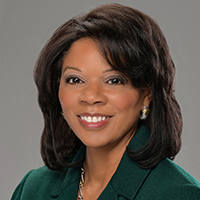
By Patricia Maryland
NNPA Guest Columnist
As America grapples with prescription opioid addiction, an epidemic shattering communities across our nation, healthcare providers face a challenging question: How can we help patients treat and manage their pain while reducing the risk of addiction?
Pain management is a serious health issue, as chronic cases of pain now affect more Americans than diabetes, heart disease and cancer combined. Not only does persistent pain afflict the emotional and financial well-being of people and their families, it also exacts a significant strain on our country — in the form of healthcare costs, long-term disability and lost worker productivity.
Pain does not discriminate based on background or health status, yet research points to substantial disparities in the prevalence, treatment and outcomes of pain. For many African-Americans and other minorities, understanding why these disparities exist is paramount to achieving pain care equity and improving quality of life.
Minorities are not at a higher risk for pain-related conditions than their White counterparts, but African-Americans consistently receive less-adequate treatment for acute and chronic pain — even after controlling for age, gender and pain intensity. What’s more, research also shows that minorities are more likely to be prescribed less-effective, non-opioid medications — or opioids at a lower prescription dosage — than Whites, even when pain severity levels are comparable.
That is not to say opioids are always the preferred tool for treating pain. Indeed, when appropriately administered, opioids can help patients relieve or manage their pain. However, the prescription of less-effective medications or lower dosages does signal a troubling gap in instances when opioids can be an effective, pragmatic solution for African American patients.
Many factors are at play in understanding why African American patients are more likely to receive inadequate pain treatment, but physician bias is perhaps the biggest factor. While most physicians are strong advocates for health equity, negative preconceptions can creep into how pain is addressed in the clinical setting. Eliminating these biases is one key way we can achieve better outcomes for African-Americans experiencing pain, and that starts by understanding a patient’s heritage and belief system. With greater cultural competence, physicians can better manage pain in a manner that’s compatible with and respectful of patients’ backgrounds.
Access is another instrumental lever in erasing the pain care gap. The Affordable Care Act (ACA) helped to increase access to healthcare considerably for African-Americans, but too many individuals remain uninsured or unable to access basic medical services, including pain relief. Encouraging loved ones to take advantage of the opportunities provided by the ACA can help them access the care and treatment they need to live comfortably.
But access alone is not enough. Equally important is building trust with the healthcare community — so that pain-related conditions can be treated, managed and prevented. We know some African-Americans continue to be skeptical of the healthcare system, and that lack of trust can lead African American patients to underreport their pain levels, only furthering inadequate pain management. African American patients must take charge of their health and feel empowered to honestly communicate and set expectations with healthcare providers in order to receive the right care at the right time.
At Ascension, we’re working to achieve equitable pain management across all minority groups. We know our field is at a tipping point, and a failure to treat pain is not only poor medicine, it’s denying our brothers and sisters a basic human right. That’s why we are working in concert with our patients to develop national, comprehensive guidelines to pain management — standards that embed healthcare equity with our understanding of patient history and cultural sensitivity.
Guided by this understanding and deepened by our relationships with our patients, we are committed to the highest standard of pain management along the care continuum. This work also requires we actively engage African American patients and explore all pathways to care — including non-medicine, integrated forms of therapy.
There is still much more work to do to truly and fully eradicate disparities in pain management, and every member of our community has a role to play. Too many of our family members, friends and neighbors are hurting — often in silence — from pain in many different forms. Together, healthcare providers and the communities we serve can empower and support vulnerable patients along their pathway to relief.
Patricia A. Maryland, Dr.PH, is the President of Healthcare Operations and Chief Operating Officer for Ascension Health, the healthcare delivery subsidiary of Ascension, the nation’s largest non-profit and largest Catholic health system.












